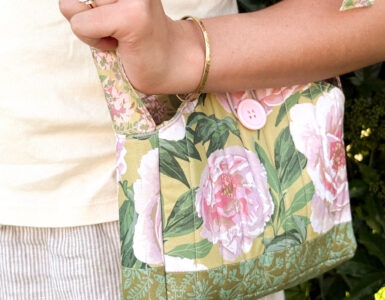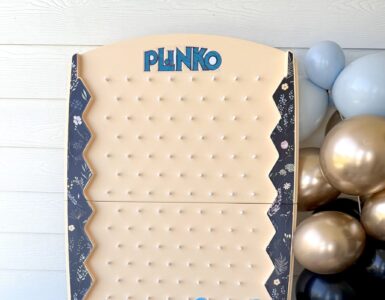Home organization has grown into a billion-dollar industry that promotes an ideal aesthetic woman go a little nuts about.
But before you stock up on more clear plastic totes, professional organizer Tracy McCubbin wants you to clean up your shopping habits.
As we head into January sales and post-holiday credit card bills, we are all reflecting on our spending, and just how much stuff we brought into our homes. Now is the time of year to reflect on why we feel like we need so much stuff in the first place.
I believe there are several key mind traps that prevent us from being able to let go of possessions that we don’t want, use or love. These physical things stop us from making real change in our habits, our homes and for our happiness.
An evolution of product availability and product pricing plays a part. So does marketing. But ultimately, it’s our emotions that push us to buy more than we need. I like to call these “clutter magnets.”
Here are a few I see women struggle with:
- True Connection: The human connection we get when shopping feels like it’s filling that void. While we may be engaging with others, the retail transaction isn’t a substitute for the true connections we all need.
- Self-confidence: Self-Confidence is a muscle that we all have the capability to build, and it starts by believing that we all bring an individual spark to the world—a flavor that is uniquely us. When we need a boost of self-confidence, we need to focus on all the things we can do for ourselves.
- Free Time: All the gadgets we purchase to ‘save time’ are actually standing in the way of what we really want to be doing.
- Big Love: Everyone wants to feel loved. Yet for some people, it’s easier to attract piles of stand-ins than the feeling itself. Don’t collect – connect!
- Self-Respect : The knowledge that we bring unique attributes into the room, even without any status symbols to telegraph them.
- Real Purpose: Nothing gives us more sense of Real Purpose than being of service or sharing our knowledge, kindness, and time to make someone else’s life better. Magnetize this feeling instead of a closet full of office supplies.
- Lasting Wisdom: We often feel the need to keep evidence of our beliefs in case they’re challenged. Newspapers, magazines, and books we’ve read can take up entire rooms because we feel if something is discarded, it could be forgotten.
Here are some simple tips to help you twice before making impulsive purchases:
Run an Amazon report to see what you have been purchasing. Look for specific patterns.
Write all purchases on a whiteboard and offer an honest evaluation. Where are you spending, and why? Were these purchases a want or a need?
Make a written inventory of big purchases. Was it worth it? And if it wasn’t, can you return it?
Always wait 24 hours before every large purchase. During that waiting period, instead of making the purchase, can you move the cost of the item into a savings account?
Tracy McCubbin’s best-selling book, Make Space for Happiness: How to Stop Attracting Clutter and Start Magnetizing the Life You Want expands on her debut widely acclaimed book, Making Space, Clutter Free, to revisit the seven clutter blocks – mind traps that make us unable to let go of possessions that we don’t want, use, or love in order to make real change. Her work has helped thousands of clients examine the deep root of how their excess possessions got there in the first place. Learn more at dclutterfly.com.















Add comment